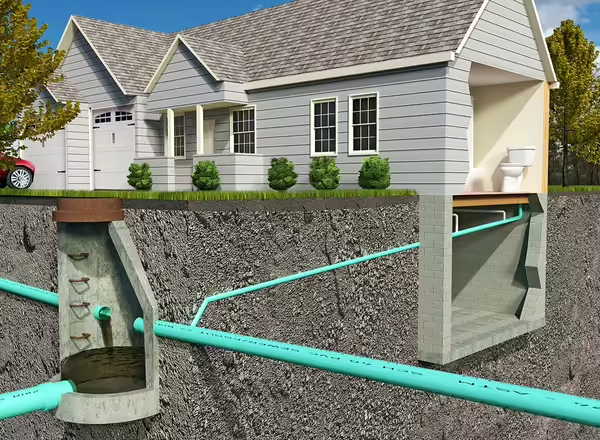When buying a house, most people simply don’t think about the condition of the waste treatment system on the property. But, with the cost of a replacement private on site system sometimes approaching $10,000, many buyers and lending agencies are now asking for professional inspection reports before the transaction is completed.
Real estate laws require the residential seller to certify whether they have any knowledge of problems with their on-site system. However, this certification alone may provide a false sense of security, since what constitutes a “problem” may be different from one homeowner to the next. A professional inspection of the system can provide peace of mind, and eliminates what may be an unpleasant surprise.

The first step for a buyer is to contact the local health department. Permits are required for installation of on-site systems, and this permit will include information on where the system is located, age of the system, and size of tank and lateral fields (if applicable), and any potential complaints that may have been filed. When requesting a report from the seller, look for the following items:
- Is the report in a standard professional format? Check with the local health department.
- What are the qualifications of the inspector? Look to see if they are a Licensed Private Sewage Installation Contractor or a Licensed Environmental Health Practitioner.
- Is there a sketch or diagram of the system?
- Was the system uncovered to inspect the size and condition of the tank?
- Are current photos included?
- Has the house been recently occupied? If the system has not been in use, it will be hard to determine if a potential problem exists.
- Check for the age of the permit.
- Has there been remodeling or an addition to the house?
When there is no current permit, an evaluation of the system should be completed by a professional inspector. For aerobic treatment units or sand filters, an evaluation can assure you that the system meets required maintenance and surface discharge requirements. If problems are noted, information on what repairs will be necessary to bring the system up to code requirements should be included.
Information supplied by Pike County Health Department.